Astronaut Terry Virts Talks Flat Earthers, Galactic Photography and Hollywood’s Best Space Movie
“I mean, Archimedes figured this out 2,000 years ago.”
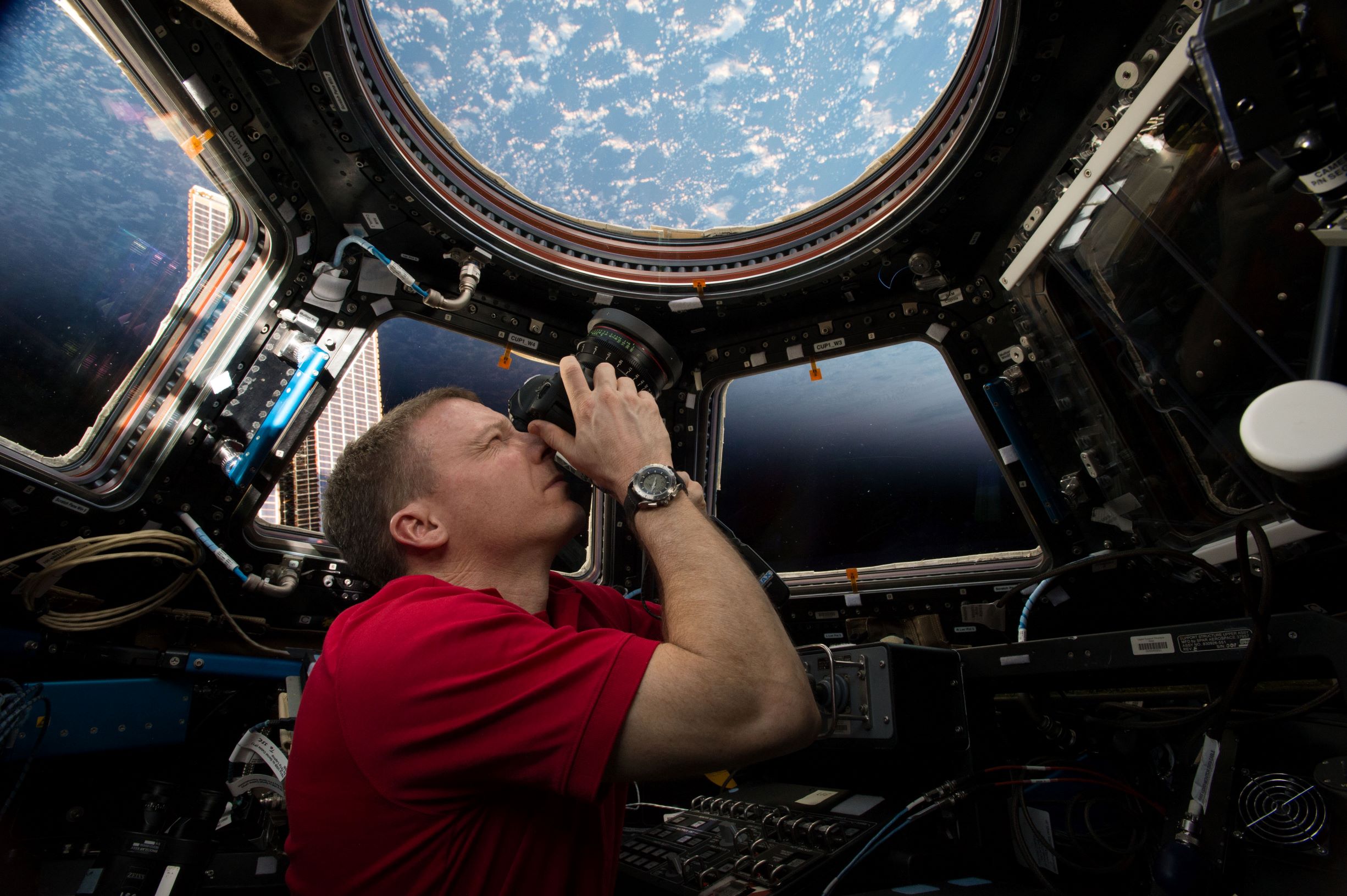
You don’t get to meet true American heroes like Colonel Terry Virts every day.
The retired NASA astronaut flew the space shuttle Endeavour, was commander of the ISS International Space Station, has flown over 40 different planes in his career (mostly F-16s and T-38s), and been awarded the prestigious Meritorious Service Medal and Air Medal, among others.
Virts also published a book of his space photography, A View From Above, and helped film the A Beautiful Planet IMAX movie. It’s fair to say the man has accomplished a lot in his 51 years.
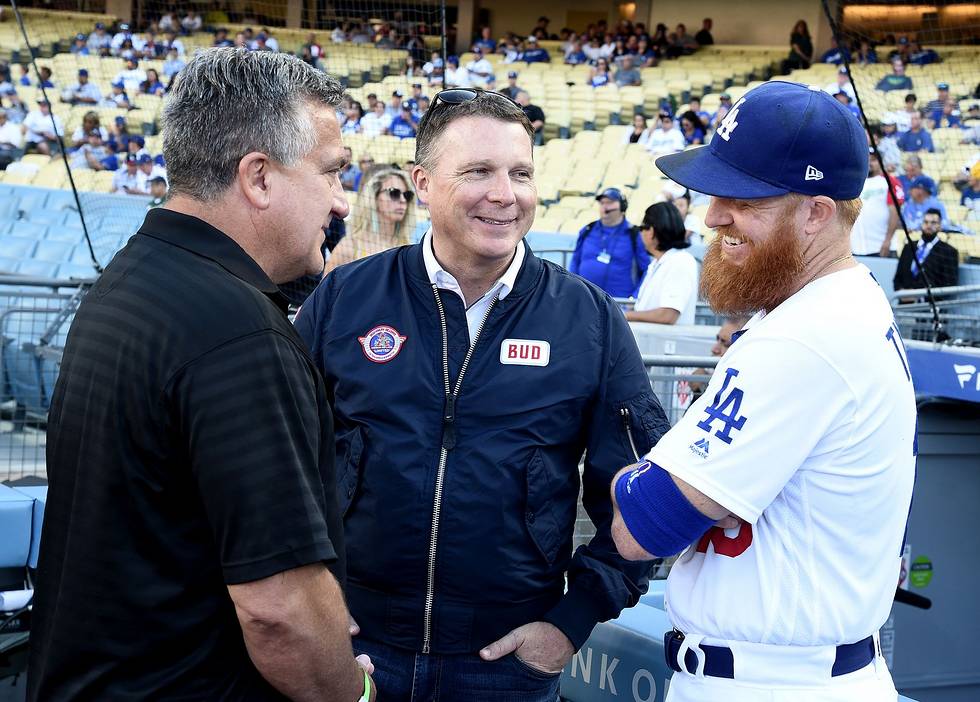
This weekend Colonel Virts also joined his favorite team, the Los Angeles Dodgers, at Chavez Ravine to celebrate the 50th Anniversary of the Apollo 11 Moon landing by throwing out the first pitch for the Folds of Honor Foundation — a nonprofit that offers scholarships and other funding for the families of fallen or injured soldiers (Budweiser donated $29,000 to Folds of Honor in Virts’ name).
We spoke with Colonel Virts about all the essentials: what he missed most living over half a year in the Big Black Void, what it’s like to spacewalk, his true thoughts on Flat Earthers, and of course if you can really fly a fire extinguisher through space. Our conversation below.
You spent 200 consecutive days in space. Is that your longest mission?
Yes. My first flight was about two weeks on the space shuttle, and my second flight was 200 days on the International Space Station.
When you’re up there that long, what do you miss most about being on Terra Firma?
Life is great in space, but there’s some things that you miss. People are the biggest thing. I had kids so you miss friends and family. The food is pretty good up there, but there’s no beer.
You know, cause it’s carbonated. And there’s no Coke either; I’m a Diet Coke addict and there was no Diet Coke. And the food is good, but it’s not fresh. There’s not like fresh bread with mayonnaise.
When I landed, we went to the airport and switched from a helicopter to an airplane and there was a normal airport food store. So our doctor went in there and got a chicken salad sandwich. I just will never forget that. It was so good to have real bread and real mayo, after 200 days.
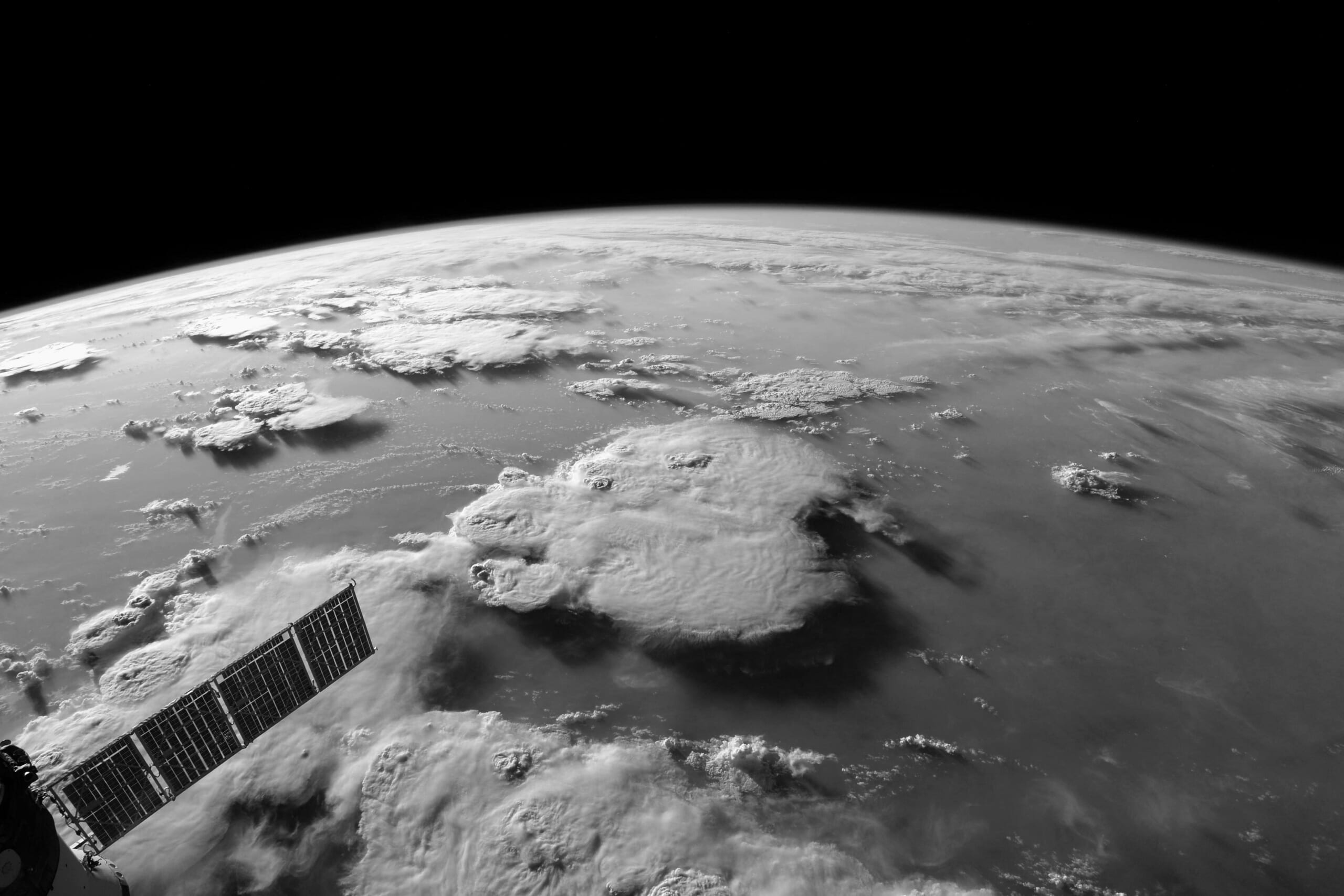
You’ve mentioned in interviews that Russia has the best food.
The Russian food is great. But absolutely I think more than anything you just crave a variety.
So I mean the American food was great; most of it is just a standard menu that you don’t get to pick, but you get to pick some things. I got nine boxes of food that I got to pick for my six month mission.
So mostly I got NASA food, but the Europeans had some food that was really good. And I actually requested a couple of boxes of Russian food. They have great mash potatoes, great Borscht. And their fish was really good. The American food doesn’t have fish; they have like bags of Starkist tuna fish from the grocery store. That’s our fish. And I like fish.
What are some of the meals?
We would have brisket and potatoes au gratin, or like cauliflower, asparagus, you can reheat.
Were they basically those emergency military rations, MREs?
Some were those. There’s a food lab at NASA in Houston and there’s a group of ladies there that run that lab and you know, compared to what I cooked as a bachelor it was probably better than that. But it’s not fresh. I survived.
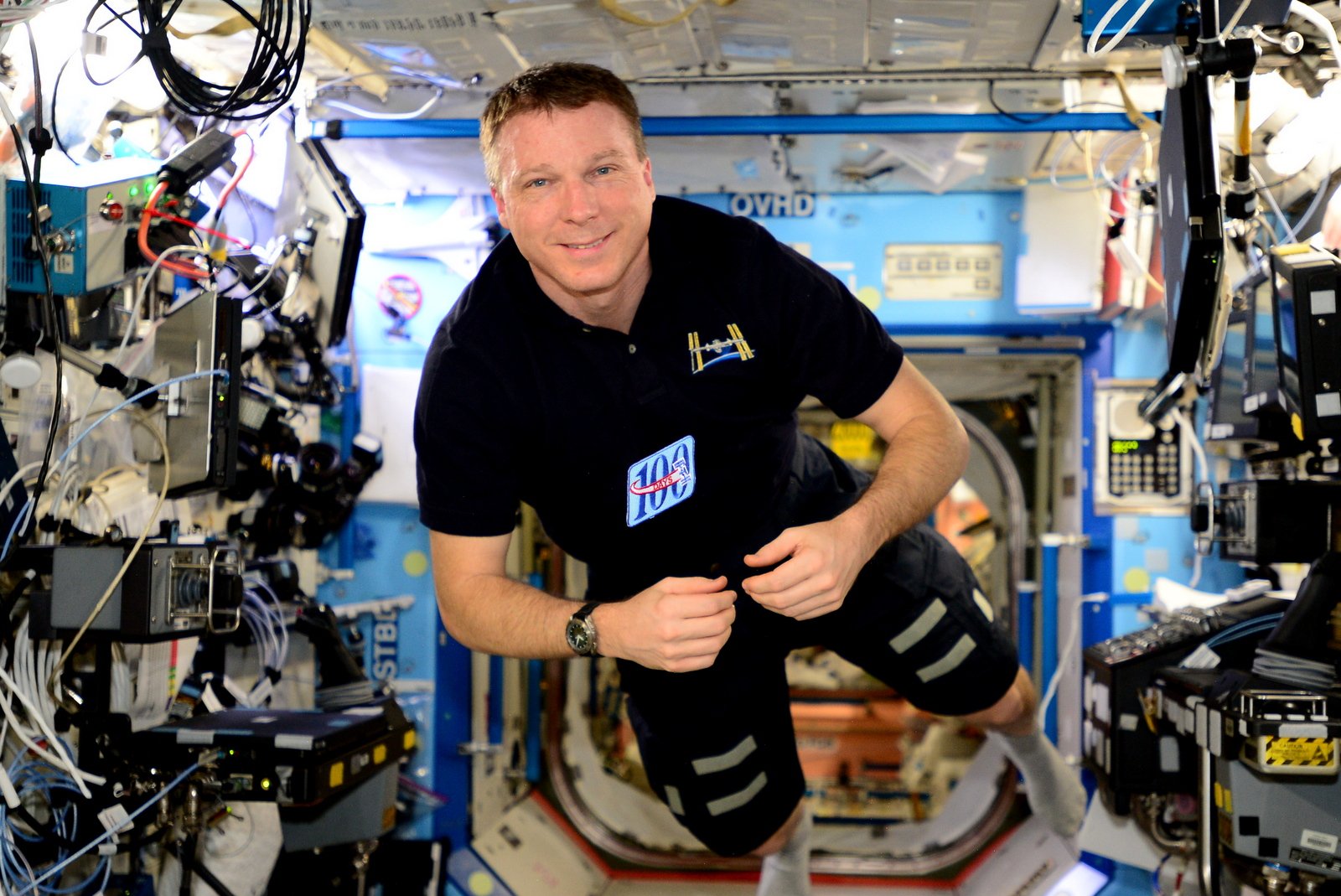
Did you get whiskey or tequila?
When I was commander of the station, we had a meeting and I said, ‘There’s no alcohol on the American segment of the station. Knock that down.’
I can’t imagine that would fly in the Russian area of the ISS. You just broke several World Circumnavigation Speed Records in honor of the Apollo 11 moon landing in a Gulfstream G650ER. Can you tell me a bit about that?
We just broke it last week. One of my cosmonaut friends Gennady Padalka [current record holder for 879 total days spent in space] joined us for one of the legs — he flew us from Kazakhstan to Mauritius.
Our new record was 46 hours, 40 minutes, but it’s around the planet over the poles. So around the equator is one record and that’s faster because the winds are out of the West. Over the north and South Pole there’s basically not a lot of wind there.
https://www.instagram.com/p/B0UDSx9nTTa
Did you ever get distracted up there? Like, Holy crap, I’m in space!
It was a problem. Like for me I had to massively, actively train my brain to focus on what you’re doing because it’s so beautiful. I mean I think a lot of folks struggle with that; you have to like fly the space shuttle and don’t look out the window cause it’s too spectacular.
You’re not technically a scientist right? You’re a pilot. What do you do all day in the space station?
I was a shuttle pilot and I did robotics. That was my thing. And I was the photo/TV guy, so I ran a lot of the photo and video systems. On the space station I was commander, but I ran everything. You are a scientist, you are the mechanic, you are the doctor. I was a crew doctor. I was the paramedical officer, I was the dentist.
Are you a doctor?
I spent a lot of times going through medical training. I went to the Houston emergency room for a week and did stitches and IVs and stuff like that.
I’m just surprised with all the scientists and PhDs up there, there wouldn’t be an actual MD.
Sometimes there is. One just launched today, an army doctor. But when I was there, if the crew members would have problems I was handing out medicine.
Didn’t you do the first tooth filling in space?
On my roommate. Yeah.
What are some other weird firsts that you accomplished?
Gennady would know this — I did the most ever photos from space. For the book, A View From Above, and that the IMAX movie Beautiful Planet. I did the first espresso in space.
I flew with Samantha Cristoferetti who’s an Italian, so that was her Lavazza machine, in this big ass box. We also did the first 3D printing in space. Probably the most significant thing we printed was a wrench.
I’m sure you’ve answered these questions a million times, but they fascinate Earth-bound humans. Describe the sensation of your first spacewalk, or any spacewalk — maybe the 50th anniversary of the first spacewalk.
That’s right — the tribute to Ed White.
https://www.instagram.com/p/Bsv4JHFHNRj
Can you walk me through it?
Yeah, there’s so many stories. So you know I was a fighter pilot. I flew the space shuttle. I did rendezvouses, I launched rockets. I thought I had done a lot of stuff. But there’s nothing like doing a spacewalk. You’re in a big, bulky suit — basically a spaceship, you know, 3-400 pounds, big metal rings — it’s hard to maneuver in.
But when you go out the hatch, you’re in outer space. I never felt nervous or scared, honestly, but I felt like I was on the clock. I have never felt so on the clock in my lifetime.
Why? Because if you stay out there too long you die?
Yeah, I mean every minute you’re out there, you know, like a little meteorite could come through, or something could go wrong. You just don’t want to spend any more time outside than you have to. I would never rush because rushing is really bad, but I deliberately moved. It was like the baseball draft, you know? Like you’re on the clock, you don’t want to waste any time. Get it done.
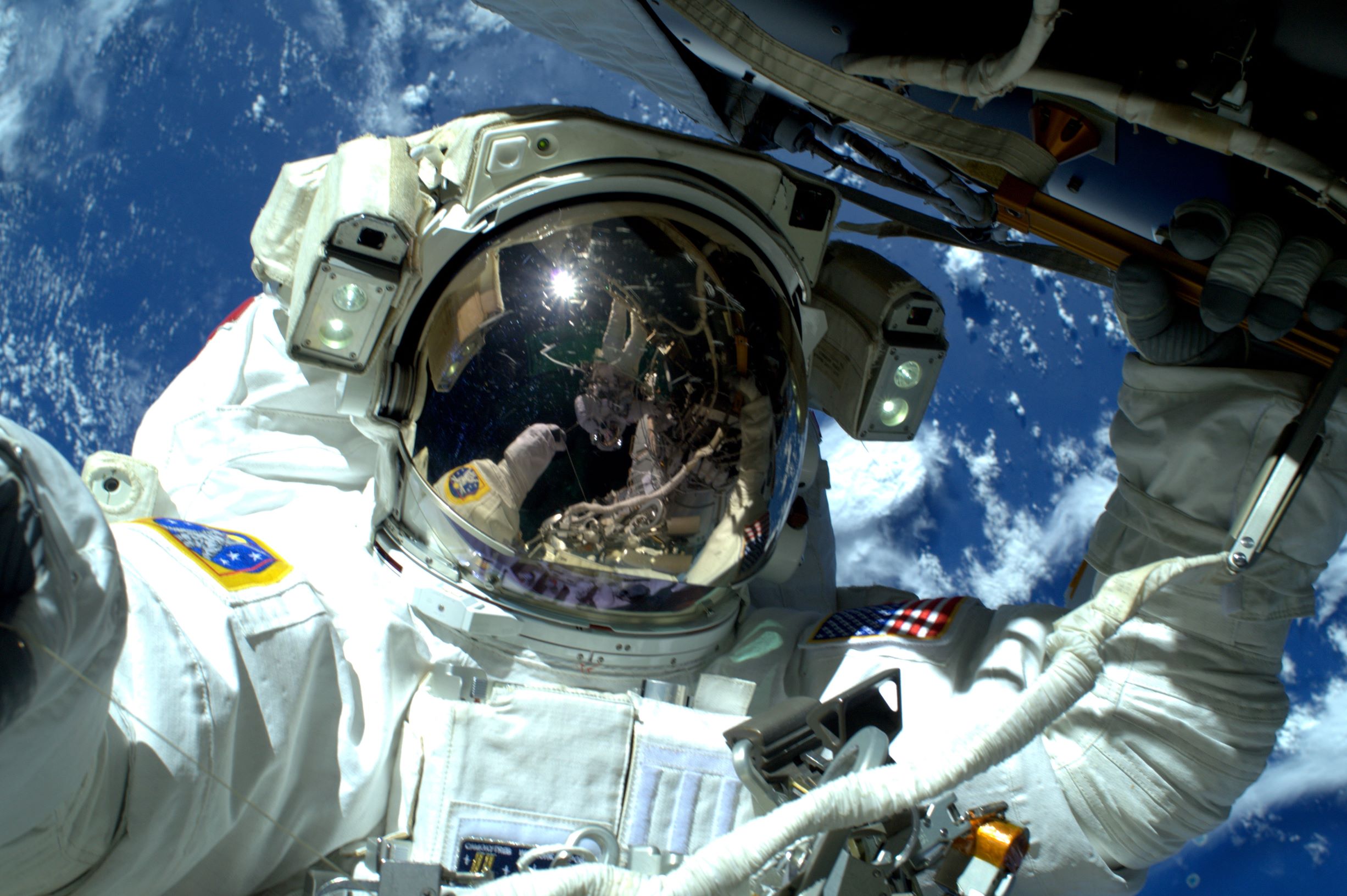
You must have been weightless before, so you knew what that would feel like.
Some astronauts report getting vertigo and getting really confused, so I didn’t want that. So the first thing I did, I go outside and I took my tether — it’s like a four or five foot long tether — I put it on the handrail in front of me and I let go. I just looked around and I’m like, ‘All right, there’s the earth going by five miles a second. I’m not going to fall. I’m good.’
Then I went back to work, but the very first thing I did was put the tether down and let go just to let my brain know, You’re good. And just make sure I wasn’t disoriented, and I wasn’t. I didn’t think I would be, but I just wanted to make sure.
You’ve flown in zero G’s before but I guess that’s different than being out in space. Do you think the second and third time were scarier because you’d already done it, or was the first time the scariest?
The first time, the first few minutes it was just disorienting. But once I got going, we got in a really good rhythm. We got everything done, we got stuff done ahead of time. The spacewalks went really well. It was just those initial moments. So the second and third one, we pretty much cranked it out.
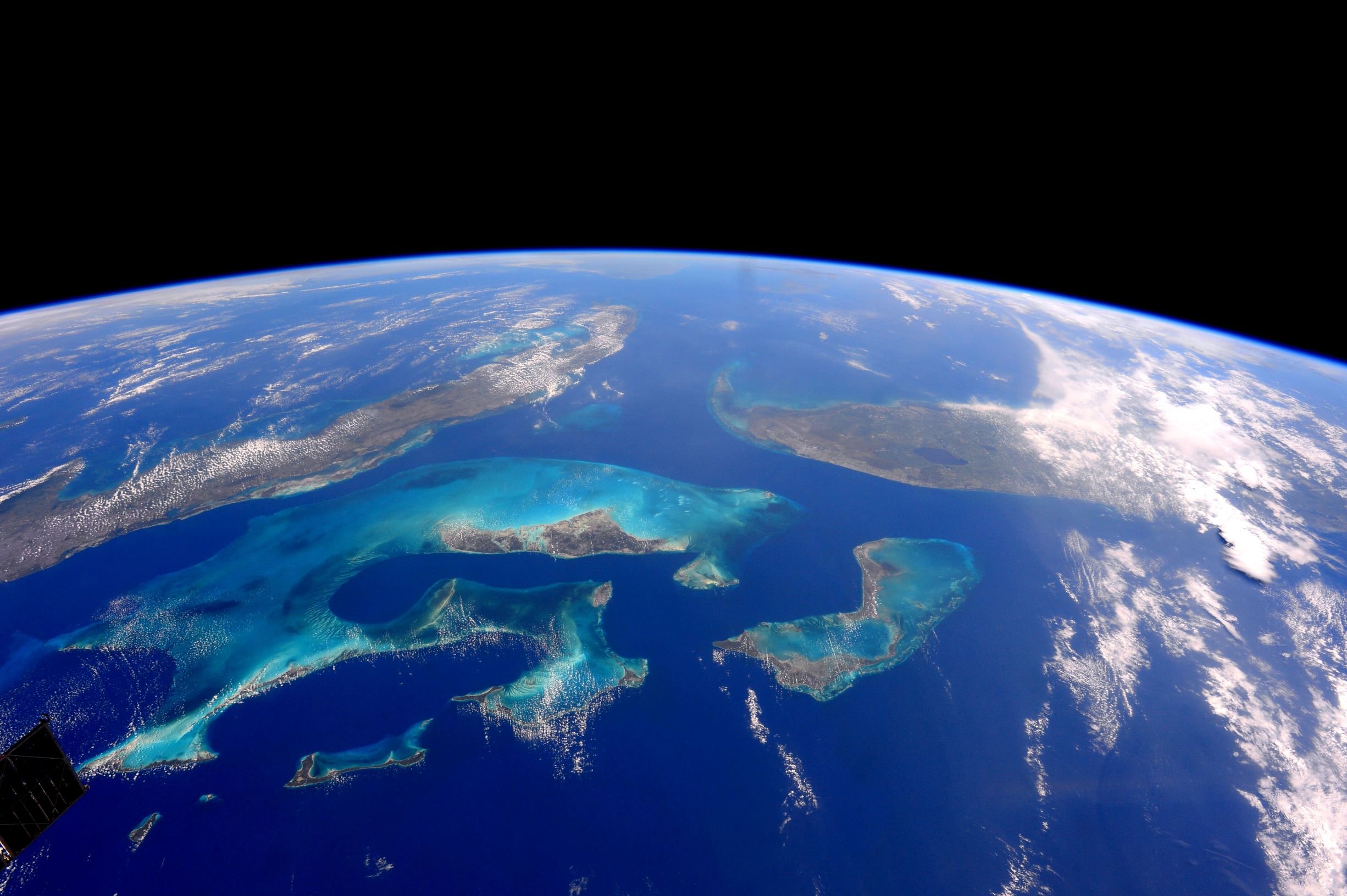
How mind-boggled are you that the Flat Earth Theory is even a movement?
We were flying around the earth and there are all these comments coming in, and I asked my social media manager to tweet this out. She didn’t. I said, ‘It’s so funny, so great to see all these Flat Earth comments coming in from all around the globe.’ Let’s make that into a quote for your article.
Deal. A friend of mine who’s the son of an astronaut told me his dad would get super pissed at Flat Earthers, because obviously they risked their lives on these missions.
I know, but the problem is most of them are just looking for Twitter followers. I mean, Archimedes figured this out 2,000 years ago. If the earth was flat when I launched eastbound, I’d still be going eastbound. Thankfully it’s not flat and I came around and landed. Yannick and I just flew around the world. It is frustrating. We’re wasting time.
There’s like this societal issue with science, like some people don’t believe science and there’s this conspiracy theory, distrust, and that’s not healthy if we want to solve things like energy and pollution and cancer — and hopefully use our future Apollo programs to solve these important problems. We got to have like a basic starting point of we all believe in science. No, not believe in science, that’s the wrong word. Know science. It’s not a belief.
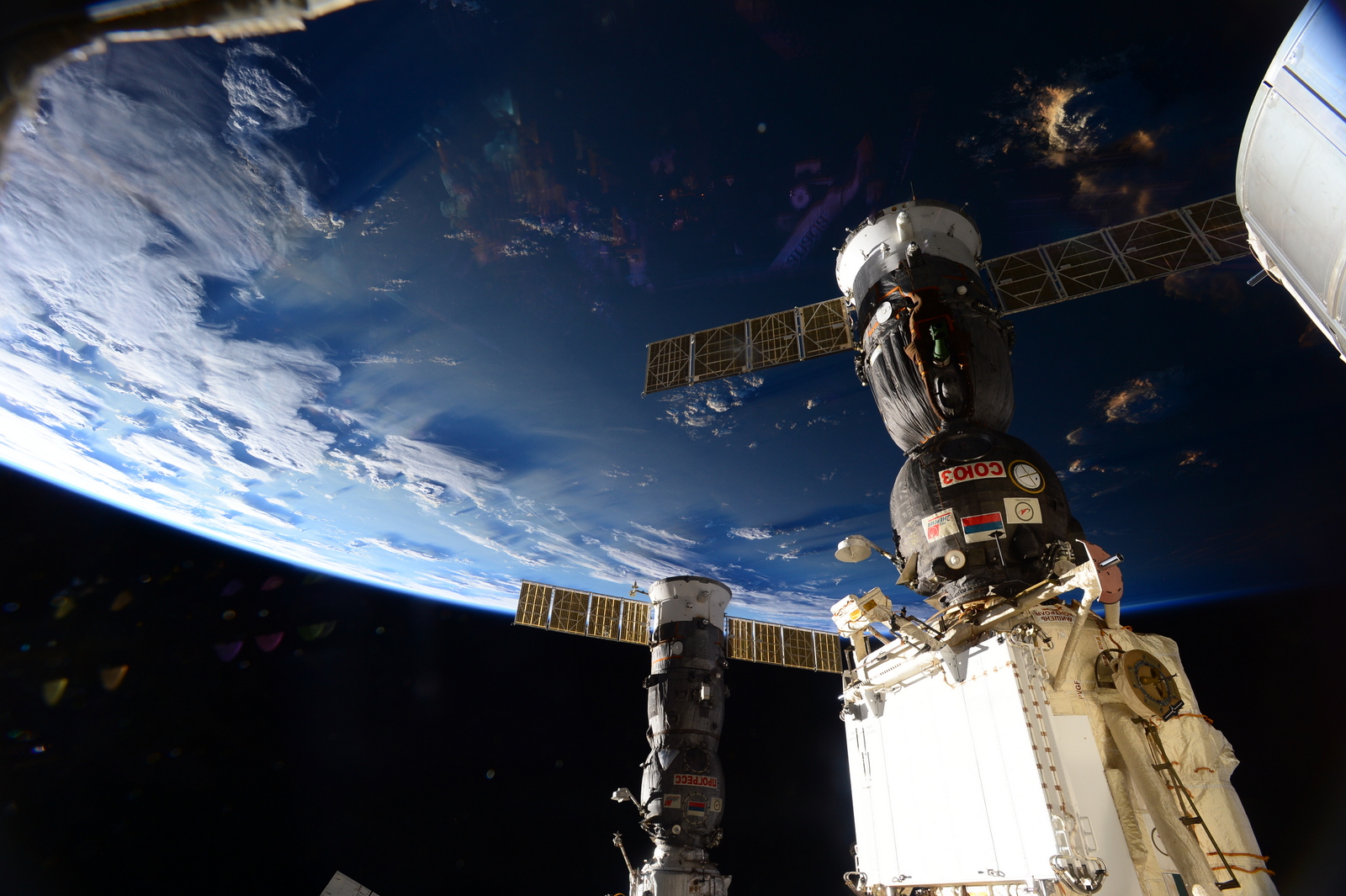
On my home page it says ‘In God I trust — everybody else has to bring data.’ I stole that from the Houston Astros, it’s on their a general manager’s office. It’s pretty funny. But my point is don’t be ideological about stuff. Just look at the data and be fact-based.
Which movie or book was more accurate, Gravity or The Martian?
If I have to choose between those two, Gravity was exactly the space station.
Exactly the space shuttle. Visually it looked exactly like it, although it was CG. The things that happened there, the idea that a space satellite could blow up and all those parts could cause other satellites to blow up, that’s a real thing.
That’s a serious, legitimate problem, so nations need to not be stupid and don’t do these military tests where they’re blowing satellites up. China did one in 2007 and I had a maneuver to avoid that debris, and I think they’ve learned their lesson. They haven’t done it since.
I think they kind of thought, ‘Oops, that was not a good idea,’ but the debris is still there in space. And a few months ago, India just did one. So that’s a bad thing. That was a real thing. Now riding a fire extinguisher to go to the Chinese space station, you can’t do that.
Which space movie got closest to reality?
Apollo 13, because it was filmed by humans. It’s not CG.
Tell us a bit about the Budweiser connection, and why were you here throwing out the first pitch at the Dodgers game?
They reached out to me tonight; they’re doing this donation to Folds of Honor, which offers scholarships for military family members. If somebody dies, their family members can get scholarships through Folds of Honor. So Budweiser made a really nice donation to them.
They just wanted me to donate the check, and I’m a big Budweiser fan. I have been for 30 years — I joined the Air Force when Desert Storm and Desert Shield happened, and at the time Busch Gardens and Seaworld and these Budweiser properties were giving free tickets to military. They’re still doing it 30 years later, and they’ve just really taken care of service members. So I appreciate Budweiser.
OK, last question. You’ve said some beautiful things about unity you’ve learned from being in the ISS. Given how fractured America and the world feels right now, what have you learned from that perspective?
You know that’s kind of my mission. I think more than the science and more than the engineering, the space station has shown us how people can and should get along. I was there with Russians right in the middle of Crimea and we still worked together. I just broke an around-the-world record with a Russian. It’s not us as humans, it’s just governments that separate us and mess it up.
I always say, sometimes I feel like we’re in 1928, and I want to do everything I can to make sure 1940 doesn’t happen.






